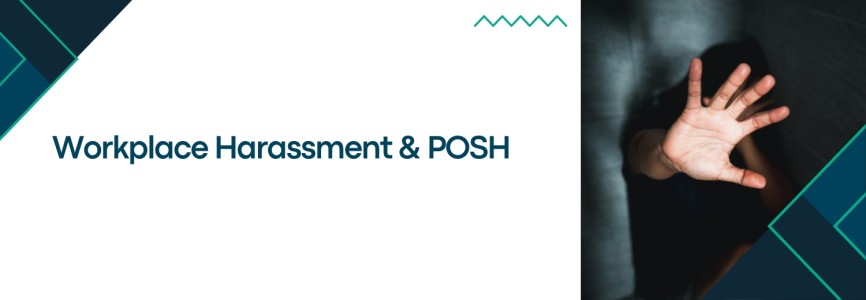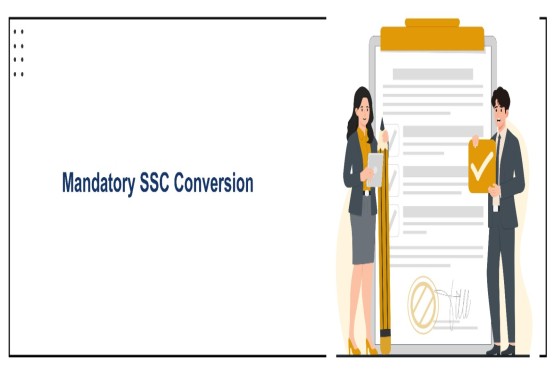Activities Covered Under Sexual Harassment
As per Section 2(n) of the Sexual Harassment of Women at Workplace (Prevention, Prohibition and Redressal) Act, 2013, the term “sexual harassment” covers a wide range of unwelcome acts or behaviour, whether committed directly or indirectly, that have a sexual nature. These activities are not limited to physical actions alone but may also include verbal and non-verbal conduct. The law recognises that such behaviour can create a hostile, intimidating, or offensive work environment and therefore strictly prohibits it.
Firstly, it includes physical contact and advances, which refer to any unwelcome touching, hugging, or physical closeness that is sexual in nature. Secondly, a demand or request for sexual favours falls under this category, whether it is an explicit proposition or implied through actions or promises of benefits. Thirdly, making sexually coloured remarks, such as lewd jokes, inappropriate comments, or suggestive statements, is considered sexual harassment. Fourthly, showing pornography or sexually explicit material, whether physically or through electronic means, is strictly prohibited. Lastly, it also covers any other unwelcome physical, verbal, or non-verbal conduct of a sexual nature, such as suggestive gestures, winking, sending inappropriate messages, or displaying sexual content in any form.
The intention behind this definition is to ensure that any conduct, which makes an individual feel uncomfortable, humiliated, or threatened in a workplace context due to its sexual nature, is recognised as sexual harassment and dealt with under the provisions of the Act.
To learn more about laws preventing sexual harassment in India.
Conduct of Employees at the Workplace Which May Lead to POSH Application
The Prevention of Sexual Harassment (POSH) framework mandates that all employees maintain a professional, respectful, and safe work environment. Any behaviour whether verbal, non-verbal, or physical that violates the dignity of a woman employee or creates a hostile environment can lead to the application of POSH compliance provisions. The following outlines key aspects of workplace conduct that may trigger its applicability.
Duty of the Employer to Prevent Sexual Harassment
Employers hold the primary responsibility to ensure that no act of sexual harassment occurs at the workplace. This includes taking proactive measures to prevent unwelcome conduct, creating awareness, issuing clear workplace policies, and enforcing disciplinary actions when necessary. The employer must also display express prohibitions against sexual harassment in visible areas and periodically review preventive mechanisms.
Forms of Unwelcome Sexual Behaviour
Sexual harassment at the workplace is not confined to a single type of act. It covers a broad spectrum of behaviours that are sexual in nature, unwelcome, and capable of creating a hostile, humiliating, or unsafe environment for the victim. Such conduct can be direct or indirect, committed by an individual or a group, and may occur physically, verbally, or through non-verbal gestures. Below is a detailed explanation of common forms of such behaviour recognised under workplace sexual harassment laws, including the POSH Act, 2013.
Eve-teasing
Eve-teasing refers to any act intended to insult the modesty of a woman. It includes indecent exposure—such as willfully displaying private parts making obscene sounds, using vulgar language, or engaging in behaviour designed to attract sexual attention. This may also involve making suggestive gestures, whistling, blocking a woman’s path, or showing objects in a manner that intrudes upon her privacy. Even if the act is portrayed as “fun” or “harmless teasing,” it becomes a form of harassment if it is unwelcome and causes discomfort.
Unsavoury Remarks and Sexist Comments
This includes making derogatory, discriminatory, or gender-based comments that stereotype or demean women. Examples include remarks about a woman’s physical appearance, attire, marital status, or capability based solely on gender. Statements like “This is not a job for women” or “You should focus on your looks rather than your work” create a hostile and unequal work environment. Such remarks undermine a woman’s professional identity and reinforce gender inequality.
Lewd Jokes and Embarrassing Humour
Sexual harassment can also take the form of inappropriate jokes or humour containing sexual innuendos. Even if made in a “light-hearted” manner, such jokes can make individuals feel uncomfortable, embarrassed, or unsafe. For example, joking about a colleague’s body, relationships, or sexual life in front of others, or circulating double-meaning memes, are clear violations. These create a hostile work environment, particularly when the victim feels singled out or ridiculed.
Innuendos and Taunts
Innuendos are indirect suggestions or remarks with sexual undertones. They are often veiled comments that carry a hidden sexual implication. Taunts may involve sarcastic or belittling statements meant to mock or provoke the victim, such as implying romantic or sexual involvement with colleagues without basis. This behaviour can be particularly damaging because it often leaves the victim uncertain about whether to respond directly, yet it still creates discomfort and anxiety.
Unwelcome Communication with Sexual Overtone
This includes unwanted phone calls, text messages, emails, or social media interactions with sexual undertones. Examples range from sending late-night messages with suggestive content to making persistent calls that contain sexual conversation or flirting despite clear disinterest from the recipient. Such acts are equally unacceptable when conducted in person, over audio/video calls, or through professional communication channels.
Inappropriate Physical Contact
This covers any form of unwelcome touching, brushing against someone’s body, or initiating physical closeness without consent. Examples include touching a person’s arm, shoulder, waist, or other body parts unnecessarily, hugging without consent, or “accidentally” brushing against someone in a manner that is avoidable. Even if such actions are framed as friendly or accidental, if the recipient finds them uncomfortable, they qualify as harassment.
Display of Sexual or Offensive Content
Displaying or sharing pornographic material, obscene images, sexually explicit videos, cartoons, or derogatory materials in any form constitutes sexual harassment. This could include putting up offensive posters in the workplace, sharing explicit images in WhatsApp groups, or leaving inappropriate content open on a shared computer screen. Even a single instance of such display, if unwelcome, can be considered a serious violation under POSH.
Molestation and Physical Confinement
Molestation refers to any form of forcible sexual contact, such as groping or grabbing, often with intent to outrage the modesty of the victim. Physical confinement occurs when someone restricts a person’s movement against their will such as blocking the door, cornering them in a room, or physically preventing them from leaving a space particularly when done with sexual intent. Such acts are severe offences and may also attract provisions under the Indian Penal Code (IPC) in addition to POSH action.
Learn more about if men can file POSH compliant.
Abuse of Power and Authority
Sexual harassment also covers instances where a person in authority exploits their position to harass a subordinate. This may include:
-
Denying equal opportunities or career advancement based on acceptance or rejection of sexual advances.
-
Creating a hostile or intimidating environment to coerce compliance.
-
Using the inherent power of managerial or supervisory status to impact an employee’s work experience negatively.
Impact on the Victim
Any conduct may qualify as sexual harassment under POSH if:
-
It causes humiliation or poses a health and safety concern.
-
It creates a discriminatory environment, making the victim feel disadvantaged in employment, promotion, or advancement.
-
It results in adverse consequences if the victim refuses to consent or objects to the behaviour.
Creating a Safe Workplace Environment
Employers must ensure healthy working conditions with respect to work, leisure, health, and hygiene, free from hostility or gender-based disadvantage. Women employees should never be treated as sex objects, and male employees must refrain from any conduct that insults the modesty of female colleagues or makes sexual advances.
Complaints Committee and Redressal Mechanism
In line with Supreme Court guidelines and POSH provisions, the head of the organisation must constitute an Internal Complaints Committee (ICC) headed by a woman, with at least half of its members being women. To maintain impartiality, a third-party member, such as an NGO representative, should be included. This body is responsible for receiving complaints, conducting inquiries, and recommending actions.
This structured conduct framework ensures that employees understand the boundaries of acceptable behaviour at the workplace and recognises actions that may invoke the provisions of the POSH Act. By adhering to these standards, organisations not only comply with legal requirements but also foster a safe, respectful, and inclusive working environment.
Consequences of Indulging in Activities Amounting to Sexual Harassment
Sexual harassment in the workplace is more than just a breach of professional conduct it is a violation of legal rights, ethical boundaries, and human dignity. The Sexual Harassment of Women at Workplace (Prevention, Prohibition and Redressal) Act, 2013 (PoSH Act) was enacted to protect women employees from such misconduct and to hold perpetrators, as well as negligent employers, accountable. Engaging in such acts can lead to serious legal, professional, social, and personal consequences, many of which are explained in detail below.
Legal Consequences
Disciplinary Action under PoSH
The Internal Complaints Committee (ICC) has the authority to investigate complaints and recommend disciplinary action against individuals found guilty. These actions can range from written warnings and formal apologies to suspension, denial of promotions, withholding salary increments, or outright termination. The recommendations are binding on the employer, meaning failure to implement them can trigger penalties against the organisation.
Learn more about POSH implementation.
Criminal Liability under the Indian Penal Code (IPC)
Some acts of sexual harassment also qualify as criminal offences under IPC provisions such as:
-
Section 354 – Outraging the modesty of a woman (imprisonment up to 5 years)
-
Section 354A – Sexual harassment (imprisonment up to 3 years)
-
Section 354D – Stalking
-
Section 509 – Insulting the modesty of a woman
When such cases are proven, offenders may face imprisonment, fines, or both. Criminal records from these offences can permanently damage personal and professional credibility.
Learn more about She box portal.
Penalties for Breach of Confidentiality
Section 16 of the POSH Act prohibits revealing the identity of the complainant, respondent, or witnesses, and details of the inquiry. Individuals, including ICC members, who breach this confidentiality can face penalties under their service rules or as prescribed by law. This ensures privacy for all parties and prevents victim shaming.
Learn more about Legal Compliance Under POSH Act 2013.
Employer and Organisational Consequences
Monetary Penalties for Non-Compliance
An employer who fails to comply with provisions of the PoSH Act such as constituting an ICC, acting on ICC recommendations, or submitting annual reports can be fined up to Rs.50,000. This fine can be imposed for each instance of non-compliance, meaning repeated negligence can lead to significant financial loss.
Repeated Offences Leading to Business Impact
If an employer is convicted of the same offence more than once, the penalty can be doubled. Furthermore, authorities can suspend or cancel the organisation’s business licence, registration, or government approval. This is especially damaging for regulated industries such as finance, healthcare, and education, where operational licences are mandatory.
Legal Proceedings Against the Organisation
Victims can also approach labour courts, civil courts, or other regulatory bodies for damages. In some cases, courts have awarded substantial compensation to victims, which the employer is obliged to pay. Non-compliance with court orders can lead to contempt proceedings, further tarnishing the organisation’s reputation.
Professional and Career Consequences for the Offender
Loss of Employment
Termination following a proven case of sexual harassment not only leads to immediate unemployment but also creates a permanent negative record. Many companies require background verification, and a history of termination for sexual harassment can make securing future employment extremely difficult.
Career Setbacks
Even when termination is avoided, other disciplinary measures such as demotion, transfer to a less favourable role, or denial of increments can stall career growth for years. Professional achievements may be overshadowed by the stigma of misconduct.
Industry Blacklisting
In close-knit industries, news of such misconduct can spread quickly, even if officially confidential. Employers may choose to avoid hiring individuals with a known history of workplace harassment due to the potential legal and cultural risks.
Reputational and Social Consequences
Damage to Personal Reputation
Even without public disclosure, workplace gossip or unofficial leaks can severely damage the accused’s standing among colleagues, friends, and family. This damage is often irreversible, affecting both professional and personal relationships.
Social Isolation
People accused or proven guilty of sexual harassment may experience exclusion from social gatherings, networking events, or professional associations. Over time, this isolation can limit personal growth opportunities and erode support systems.
Psychological and Emotional Impact
Stress and Anxiety from Proceedings
Facing formal inquiries and possible criminal charges can be emotionally draining. The accused may deal with constant fear of job loss, financial instability, and social backlash, leading to heightened anxiety and depression.
Long-Term Guilt and Regret
In cases where the offender later recognises the harm caused, the emotional burden of guilt can be significant. This may affect mental health, relationships, and self-esteem for years.
Importance of Compliance and Respectful Conduct
Creating a Safe Workplace
Maintaining professional conduct, understanding workplace boundaries, and treating all colleagues with respect are essential for fostering a safe environment. Compliance is not merely a legal obligation but also a moral one that strengthens workplace culture.
Organisational Responsibility
Employers must take preventive steps, such as conducting awareness programs, providing regular PoSH training, and ensuring the ICC functions effectively. A zero-tolerance policy toward sexual harassment not only reduces legal risks but also enhances employee morale and productivity.
Conclusion
Workplace sexual harassment is not only a violation of individual dignity but also a serious breach of legal and organisational responsibilities. The PoSH Act, 2013 provides a comprehensive framework to define, prevent, and redress such misconduct through clear guidelines on prohibited behaviours, employer duties, penalties, and the functioning of the Internal Complaints Committee. Indulging in any form of unwelcome sexual behaviour whether verbal, non-verbal, or physical can lead to severe legal, professional, social, and psychological consequences for individuals, while employers face substantial financial, reputational, and operational risks for non-compliance.
Ensuring a respectful and safe workplace is a shared responsibility. Employers must take proactive measures through awareness programs, transparent policies, and strict enforcement of the law, while employees must uphold professional boundaries and mutual respect. Ultimately, effective implementation of the PoSH Act not only safeguards legal compliance but also fosters a culture of trust, equality, and productivity making it essential for the long-term success and integrity of any organisation.
Frequently Asked Questions (FAQs)
Q1. What is considered sexual harassment under the PoSH Act, 2013?
Ans. Sexual harassment includes any unwelcome physical, verbal, or non-verbal conduct of a sexual nature. This may involve physical contact and advances, requests for sexual favours, sexually coloured remarks, showing pornography, or any other unwelcome sexual behaviour that causes discomfort, humiliation, or a hostile work environment.
Q2. Can verbal remarks or jokes be considered sexual harassment?
Ans. Yes. Lewd jokes, sexually coloured remarks, innuendos, taunts, and derogatory comments based on gender can amount to sexual harassment if they are unwelcome and cause discomfort or embarrassment to the recipient.
Q3. What is the role of the Internal Complaints Committee (ICC)?
Ans. The ICC is responsible for receiving complaints, conducting fair inquiries, maintaining confidentiality, and recommending appropriate disciplinary action to the employer. It must be headed by a woman, with at least half the members being women, and include an external member familiar with sexual harassment issues.
Q4. What are the penalties for employers under the PoSH Act?
Ans. Employers can be fined up to Rs.50,000 for failing to:
-
Constitute an ICC.
-
Implement ICC recommendations.
-
Submit annual compliance reports.
Repeated offences may lead to doubled penalties, cancellation of licences, or withdrawal of government approvals.
Q5. Can individuals face criminal charges for sexual harassment?
Ans. Yes. Certain acts such as assault, molestation, stalking, and insulting the modesty of a woman are offences under the Indian Penal Code and can lead to imprisonment, fines, or both, in addition to disciplinary actions under the PoSH Act.
Q6. Is confidentiality maintained during a PoSH complaint inquiry?
Ans. Yes. Section 16 of the PoSH Act prohibits disclosing the identity of the complainant, respondent, witnesses, or any details of the inquiry. Breach of confidentiality can attract penalties under service rules or prescribed laws.
Q7. What if an organisation has fewer than 10 employees?
Ans. If an organisation has fewer than 10 employees, complaints are addressed by the Local Complaints Committee (LCC) constituted by the District Officer, instead of an internal ICC.
Q8. How can organisations prevent workplace sexual harassment?
Ans. Preventive measures include:
-
Establishing a clear anti-sexual harassment policy.
-
Conducting regular training and awareness programs.
-
Ensuring proper functioning of the ICC.
-
Promoting a culture of respect and equality.
Q9. What are the consequences for an individual found guilty of sexual harassment?
Ans. Consequences may include termination of employment, demotion, pay cuts, denial of promotions, loss of professional credibility, social isolation, and in severe cases, criminal prosecution.
Q10. Why is PoSH compliance important for organisations?
Ans. Beyond avoiding legal penalties, compliance fosters a safe, respectful, and productive workplace. It helps reduce employee turnover, improves morale, and enhances the organisation’s reputation in the industry.











































































_crop10_thumb.jpg)


































































_crop10_thumb.jpg)
_crop10_thumb.jpg)



_crop10_thumb.jpg)


_crop10_thumb.jpg)





_crop10_thumb.jpg)

_crop10_thumb.jpg)














-suratgujarat-section-158_crop10_thumb.jpg)
-suratgujarat_crop10_thumb.jpg)
-(33)_crop10_thumb.jpg)



-ahmedabad_crop10_thumb.jpg)
-learn_crop10_thumb.jpg)

-learnn_crop10_thumb.jpg)



























































_crop10_thumb.jpg)























_Guidelines_learn_crop10_thumb.jpg)























_learn_crop10_thumb.jpg)
_crop10_thumb.jpeg)










_crop10_thumb.jpg)




_Second_Amendment_Rules,_2025_learn_crop10_thumb.jpg)







_learn_crop10_thumb.jpg)












































_learn_crop10_thumb.jpeg)






















_learn_crop10_thumb.jpg)



_rd_roc_learn_crop10_thumb.jpg)
















_learn_crop10_thumb.jpg)














_learn_crop10_thumb.jpg)
_Learn_crop10_thumb.jpg)











































_learn_crop10_thumb.jpg)




_learn_crop10_thumb.jpg)













_crop10_thumb.jpeg)


















